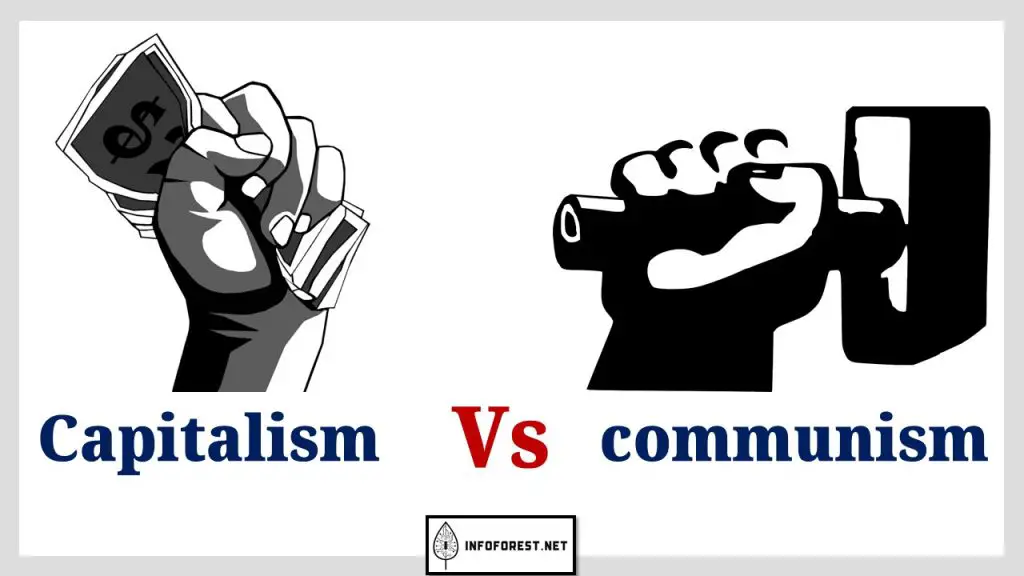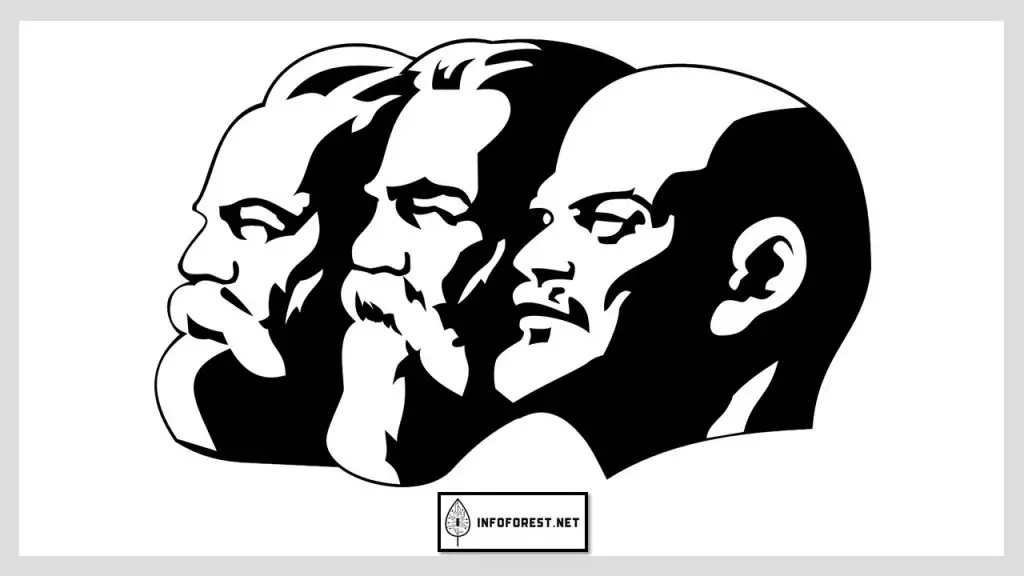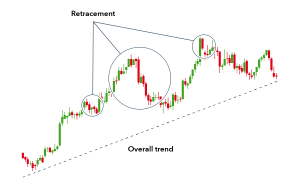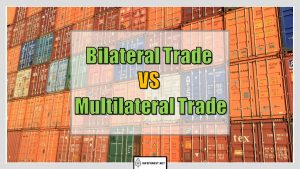
Capitalism and communism are two different economic systems that have been used by different societies throughout history. Capitalism is an economic system in which private individuals own and control the means of production and distribution of goods, and the profit motive is used to drive economic activity. Communism, on the other hand, is an economic system in which the means of production and distribution are owned and controlled by the community as a whole, and the goal is to create a classless society in which resources are shared equally.
There are several key differences between capitalism and communism:
- Ownership of the means of production: In capitalism, the means of production (such as factories, land, and resources) are owned by private individuals or corporations, while in communism, they are owned by the community as a whole.
- Distribution of wealth: In capitalism, wealth is distributed according to the principle of “from each according to his ability, to each according to his contribution,” while in communism, wealth is distributed according to the principle of “from each according to his ability, to each according to his need.”
- Role of the government: In capitalism, the government plays a minimal role in the economy, while in communism, the government plays a central role in planning and controlling the economy.
- Economic incentives: In capitalism, economic incentives such as profit and competition drive economic activity, while in communism, the goal is to meet the needs of the community as a whole, rather than to generate profit.
- Economic equality: Capitalism is associated with economic inequality, as some individuals and businesses are able to accumulate more wealth than others, while communism aims to create a classless society with greater economic equality.
what is Capitalism
Capitalism is an economic system in which private individuals or companies own and control the means of production and distribution of goods and services, and the profit motive is used to drive economic activity. The production of goods and services is guided by the profit motive, which means that businesses aim to produce and sell goods and services in order to make a profit.
In capitalism, prices are determined by the market, which means that the supply and demand for a particular good or service determine its price. This is in contrast to a planned economy, in which prices are set by the government.
Capitalism is characterized by a number of key features, including private property, the profit motive, and competition. Private property refers to the right of individuals or companies to own and control the means of production and distribution of goods and services. The profit motive refers to the desire to make a profit by producing and selling goods and services. Competition refers to the idea that businesses compete with each other in order to win customers and make a profit.
Capitalism has been the dominant economic system in the world for the past several centuries, and it has played a major role in the development of modern industrialized societies. However, it has also been criticized for creating economic inequality and for promoting consumerism and materialism.

what is Communism
Communism is an economic and political ideology that aims to create a classless, stateless society in which the means of production and distribution are owned and controlled by the community as a whole, and resources are shared equally. The ultimate goal of communism is to create a society in which there are no social classes and everyone works together for the common good.
In a communist society, the government plays a central role in planning and controlling the economy. The government controls the means of production and distribution, and there is no private ownership of property. Instead, the community as a whole owns and controls the means of production, and resources are distributed according to the principle of “from each according to his ability, to each according to his need.”
Communism has been implemented in a number of countries, including the Soviet Union, China, and Cuba. However, it has also been criticized for suppressing individual freedoms and for its lack of economic efficiency.

Main differences between Capitalism and Communism
There are several key differences between capitalism and communism:
- Ownership of the means of production: In capitalism, the means of production (such as factories, land, and resources) are owned by private individuals or corporations, while in communism, they are owned by the community as a whole.
- Distribution of wealth: In capitalism, wealth is distributed according to the principle of “from each according to his ability, to each according to his contribution,” while in communism, wealth is distributed according to the principle of “from each according to his ability, to each according to his need.”
- Role of the government: In capitalism, the government plays a minimal role in the economy, while in communism, the government plays a central role in planning and controlling the economy.
- Economic incentives: In capitalism, economic incentives such as profit and competition drive economic activity, while in communism, the goal is to meet the needs of the community as a whole, rather than to generate profit.
- Economic equality: Capitalism is associated with economic inequality, as some individuals and businesses are able to accumulate more wealth than others, while communism aims to create a classless society with greater economic equality.
Difference Between Capitalism and Communism Comparison Table
Here is a table that summarizes the differences between capitalism and communism:
| Capitalism | Communism |
|---|---|
| Private ownership of the means of production | Community ownership of the means of production |
| Production is driven by the profit motive | Production is driven by the need to meet the needs of the community |
| Competition between businesses | No competition between businesses |
| Prices determined by market | Prices determined by the government |
| Individual rights and freedoms emphasized | Collective good is emphasized over individual rights and freedoms |
| Economic inequality is present | Aim to create a classless society with greater economic equality |
| Government plays a minimal role in the economy | Government plays a central role in planning and controlling the economy |
| No central plan for production and distribution | Central plan for production and distribution |
| Emphasis on consumerism and materialism | Emphasis on meeting the needs of the community as a whole |
| Political power is held by a small group of individuals or businesses | Political power is held by the community as a whole |
Most Viewed Articles
Conclusion
In conclusion, capitalism and communism are two very different economic and political systems. Capitalism is characterized by private ownership of the means of production, a profit motive, competition between businesses, and the market determines prices. Communism, on the other hand, is characterized by community ownership of the means of production, a focus on meeting the needs of the community, no competition between businesses, and prices determined by the government. Both systems have their own strengths and weaknesses, and which one is best depends on the specific context and goals of a society.
We also invite you not to miss our other popular articles such as:
Difference between left and right Twix
Difference Between Eastern Time Zone and Central Time Zone
Difference Between EST and EDT
Difference Between Evening and Afternoon
and Difference Between Zip Code and Postal Code






